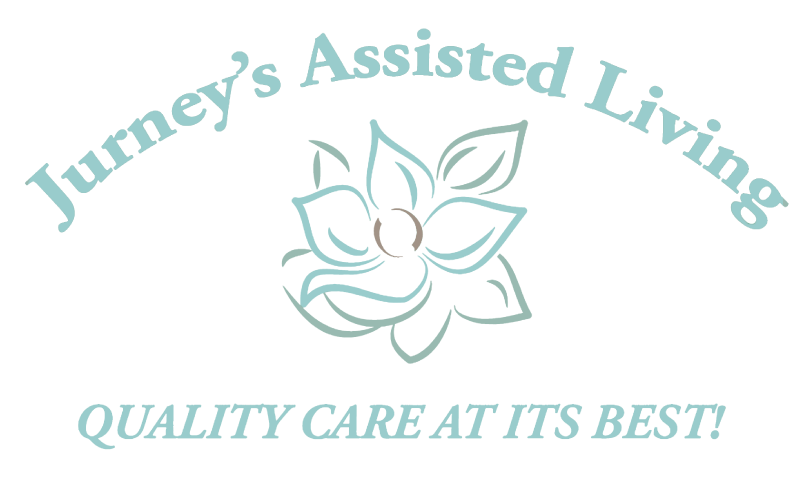Finding Comfort and Support: How Assisted Living Helps Seniors Battling Depression
Finding Comfort and Support: How Assisted Living Helps Seniors Battling Depression
Depression is a widespread , and unfortunately very common, issue among seniors, with approximately 7 million adults aged 65 and older experiencing some form of depression in the United States. As seniors age, they often face challenges that can contribute to feelings of sadness, loneliness, and isolation, increasing the risk of depression. Assisted living communities provide an essential lifeline for seniors battling depression by offering a supportive, caring environment that promotes mental well-being and overall quality of life. Assisted living can help seniors overcome depression and regain a sense of purpose and joy.
Socialization and Companionship
One of the most significant benefits of an assisted living community is the opportunity for seniors to socialize and form meaningful connections with their peers. Many seniors living alone or with limited interaction can experience feelings of loneliness and isolation, which can contribute to depression. Assisted living communities offer various activities and programs that encourage socialization, such as:
- Group outings and events: Organized trips, cultural outings, and recreational activities provide seniors with a chance to connect with others while enjoying new experiences.
- Clubs and hobby groups: From book clubs to gardening groups, assisted living communities often offer a wide range of various clubs and activities that cater to diverse interests, allowing seniors to bond over shared passions.
- Communal dining: Sharing meals with others is an essential part of building relationships and reducing feelings of isolation. Assisted living communities typically offer communal dining spaces where seniors can enjoy meals with their neighbors and make new friends.
Emotional Support and Counseling
Assisted living communities recognize the importance of mental health and often provide essential emotional support and counseling services for seniors struggling with depression. This support can come in various forms, including:
- On-site mental health professionals: Some communities have trained mental health professionals on staff to provide individual counseling and support for residents dealing with emotional challenges.
- Support groups: Regularly scheduled support groups can offer seniors a safe, confidential space to discuss their feelings and experiences with others facing similar challenges.
- Family involvement: Assisted living communities often encourage family members to be involved in their loved one’s emotional well-being by facilitating open communication and providing resources for education and support.
Physical Activity and Wellness Programs
Engaging in regular physical activity has been proven to have a positive impact on mental health, including reducing symptoms of depression. Assisted living communities typically offer a range of wellness programs and activities designed to keep seniors physically active and engaged, such as:
- Fitness classes: From chair yoga to tai chi, many communities offer age-appropriate fitness classes designed to accommodate various ability levels.
- Walking classes: Organized walking groups provide seniors with a chance to get fresh air, exercise, and socialize with others.
- Personalized exercise plans: Some communities offer individualized exercise plans tailored to each resident’s unique needs and abilities.
Access to Medical Care and Medication Management
Depression in seniors often goes undiagnosed or untreated, as symptoms can be mistaken as a side effect of natural aging or other health related issues. In assisted living communities, residents have access to medical care and regular health assessments, increasing the likelihood of identifying and treating depression. Additionally, staff can help manage medications for seniors with depression, ensuring they take their prescribed medications consistently and at the correct dosages.
Structured Routines and Purposeful Activities
Having a structured daily routine and engaging in purposeful activities can provide seniors with a sense of stability and accomplishment, which can be beneficial in combating depression. Assisted living communities offer a range of activities designed to stimulate the mind, promote creativity, and foster a sense of purpose, including:
- Art and music therapy: Creative outlets such as painting, drawing, or playing an instrument can provide emotional expression and stress relief.
- Lifelong learning opportunities: Many communities offer educational programs, guest speakers, and workshops that allow seniors to continue learning and growing.
- Volunteer opportunities: Giving back to others can provide a sense of purpose and fulfillment. Assisted living communities may offer volunteer opportunities or partner with local organizations to create meaningful experiences for residents.
Safe and Supportive Environment
Assisted living communities provide a safe and supportive environment where seniors can thrive. Trained staff is available around the clock to assist with daily tasks, respond to emergencies, and provide companionship. This level of support can alleviate feelings of helplessness or vulnerability that may contribute to depression.
Customized Care Plans
Every individual’s experience with depression is unique, and assisted living communities understand the importance of providing customized care plans to address each resident’s specific needs. By working closely with seniors, their families, and healthcare providers, assisted living care staff can develop personalized care plans that incorporate mental health support, physical activity, social engagement, and other elements essential for well-being.
Reducing Caregiver Stress
Caring for a loved one with depression can be emotionally draining and physically demanding, leading to caregiver stress and burnout. By opting for assisted living, family caregivers can ensure their loved one receives the support and care they need while also allowing themselves to recharge and maintain their emotional well-being.
Conclusion
Assisted living communities offer a comprehensive approach to helping seniors battling depression, addressing the physical, emotional, and social aspects of well-being. By providing opportunities for socialization and companionship, emotional support and counseling, physical activity and wellness programs, and access to medical care and medication management, assisted living communities create an environment that promotes mental health and overall quality of life. Customized care plans, a safe and supportive environment, and reduced caregiver stress further contribute to the positive impact of assisted living on seniors struggling with depression.
By considering the benefits of assisted living for seniors with depression, families can make informed decisions that prioritize the mental health and well-being of their loved ones. With the right support and resources, seniors can overcome depression and enjoy a fulfilling, purpose-driven life in a caring and nurturing community.
Jurney’s Assisted Living offers a discerning residential environment for those who, for whatever reason, should not live alone, but do not require skilled nursing care. Here, residents can live as independently as they wish, with the calm assurance that help is always available, should they require assistance with their activities of daily living. Residents may range from being very independent to being physically and/or memory challenged. Schedule a tour today.

